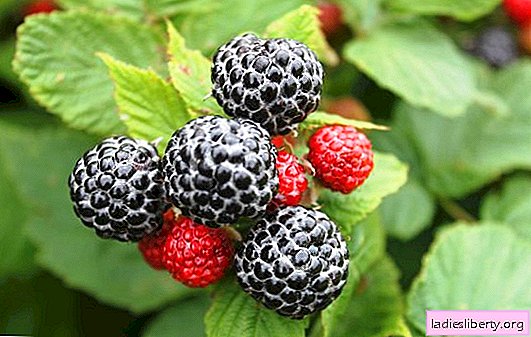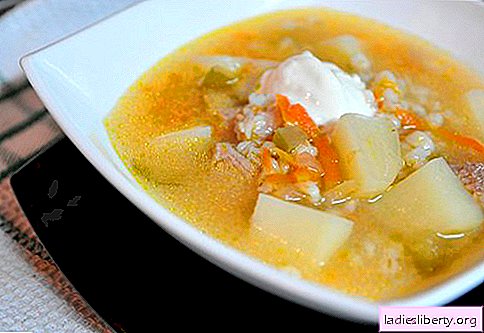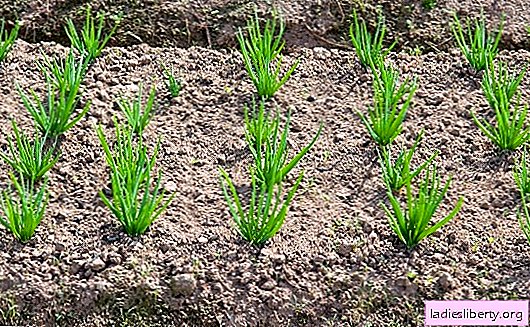
The berry-like fruits of watermelon can be confidently called the favorite delicacy of a huge number of people living on our planet. Watermelons are wild, fodder and canteens. To help your body cope with any disease or just enjoy the unforgettable taste of this "miracle of nature", you need to know several features of consumption and the possibilities of the substances that make up this berry.
What is rich: what vitamins in watermelons and other active ingredients
The ripe fruits of watermelon are not only tasty, but also very useful, due to their chemical composition, which contains about 90 percent of water and a huge amount of substances that have a beneficial effect on the human body. The pulp and peel are rich in organic iron, phosphorus, calcium, sodium, magnesium, potassium; easily digestible sugars. Vitamins A, PP and group B play an important role in the protective and regenerative functions of the body. Proteins and pectins contribute to proper metabolism.
Watermelon seeds are a storehouse of essential fatty acids that affect the regeneration of cells throughout the body. Watermelon seed oil is used in the cosmetic and food industries, since the physicochemical composition is identical to almond oil, and the taste resembles olive oil.
What vitamins in watermelons can you forget about - choose, consume and preserve the fruit correctly
Watermelons appear in our markets and on store shelves mainly in the summer. In order not to "say goodbye" to the vitamins and useful components in the composition of the berry, take its choice very seriously.
• When buying a watermelon, pay attention to the integrity of the peel.
• Avoid damage and putrefactive formations.
• Never take a watermelon sliced and wrapped in cling film.
Any damage to the watermelon rind, including slicing it “for testing”, can lead to the destruction of vitamins and minerals, which can lead to a negative effect on the body.
Some varieties of watermelons are stored until winter, and even until early spring. In this case, the berry is best kept in limbo. You can use fabric bags, woven nets or paper bags. For several days or weeks, watermelon can be stored in a dark and cool room (in the refrigerator). Sliced watermelon is better stored in a tightly closed container for up to two days or in a freezer (up to six months).
Any cookbook boasts watermelon dishes, but heat treatment can change the effect of useful ingredients. Therefore, it is best to eat fresh watermelons.
The features of which vitamins in watermelons can help the body
The richness of the vitamin composition of watermelons has been known for a long time. The well-known claim that watermelons perfectly cleanse the kidneys and liver is partly true, because they contain a large amount of fiber and pectin, which remove harmful substances from the body.
L-citrulline, which is part of the pulp of a giant berry, plays a very important role in metabolic processes, removes cholesterol. Thanks to this amino acid, people with diabetes, atherosclerosis, and gout can also enjoy watermelon.
But watermelon diets - a serious misconception, because this berry contains a high amount of carbohydrates and has a large glycemic index, which can increase appetite and increase extra pounds.
It was found that in the crusts of watermelon contains citrulline, which synthesizes nitric oxide, which promotes the expansion of arterial vessels, which positively affects the condition of the whole organism and prevents the increase in blood pressure. The same substance enhances the "masculine power."
Watermelon also contains lycopene - the most powerful carotenoid antioxidant that is present in human blood. This substance prevents some problems of the body, and sometimes even helps to eliminate them:
• prevention of cardiovascular diseases (atherosclerosis, coronary heart disease);
• prevention of ophthalmic diseases (cataract, glaucoma);
• prevention of oncological diseases (cancer of the prostate, lung, stomach);
• prevention and treatment of gum disease (gingivitis, gum bleeding).
What vitamins in watermelons are useful and what are harmful
• Vitamin A (carotene, beta-carotene) - has an immunostimulating effect, a powerful antioxidant.
Excess carotene can lead to staining of the skin, and according to the latest scientific studies, to cancers in smokers.
• Vitamin B 1 (thiamine) - a vitamin that breaks down when heated. It is necessary for the proper development and growth of skeletal muscles.
Vitamin deficiency leads to damage to the nervous system.
• Vitamin B 2 (riboflavin) is an extremely important vitamin in the blood formation and reproductive function of the body. Thanks to him, our skin, hair and nails look healthy. Helps normalize the thyroid gland.
A deficiency of B 2 can cause redness of the skin, seborrhea, cracks in the lips, anemia, pain in the legs.
• Vitamin PP (nicotinic acid) - lowers blood cholesterol, is involved in redox reactions of the body.
An excess of vitamin PP can cause dizziness and diarrhea.
• Vitamin B 9 (folic acid) - essential for the circulatory and immune systems of the human body.
With vitamin deficiency, growth slows down and blood formation is impaired.
• Vitamin C (ascorbic acid) - a powerful antioxidant that promotes the formation of collagen in skin cells.
Lack of ascorbic acid leads to problems with nails and hair, lethargy, fragility of blood vessels.
The main useful qualities of watermelon - tips and tricks
Given what vitamins watermelons are famous for, what minerals and trace elements are rich in flesh, peel and seeds of watermelon, we can draw some conclusions that lovers of this sweet berry are really lucky. If you still do not see anything useful in this product - pay attention to some positive qualities of this fruit:
1. Treats constipation. If there are no contraindications, feel free to take the pulp of watermelon for food.
2. Watermelon seeds can save you from kidney stones. Grind the seeds of watermelon. Pour a tablespoon of the powder with a glass of boiling water, let it brew for 10 minutes. The resulting infusion can be drunk.
3. Relieves inflammation of the genitourinary system. The use of freshly squeezed juice of watermelon or its pulp contributes to the anti-inflammatory effect.
4. Watermelon removes heartburn. A few pieces of the berry can get rid of this "hot" problem.
5. Perfectly reduces blood pressure, normalizes blood circulation. A couple of slices a day will help solve the problem with hypertension.
6. Improves heart function.
7. It treats acne on the face, removes inflammation on the skin. Lightly rub the soft side of the watermelon peel over each area of inflammation. The skin will be cleansed.
8. Watermelon seeds have an anthelmintic effect and hemostatic. Grind them into powder. You can take a teaspoon three times a day.
9. Watermelon juice contributes to the release of stagnant bile in the human body.
10. Pulp is an excellent remedy for eczema and psoriasis.











